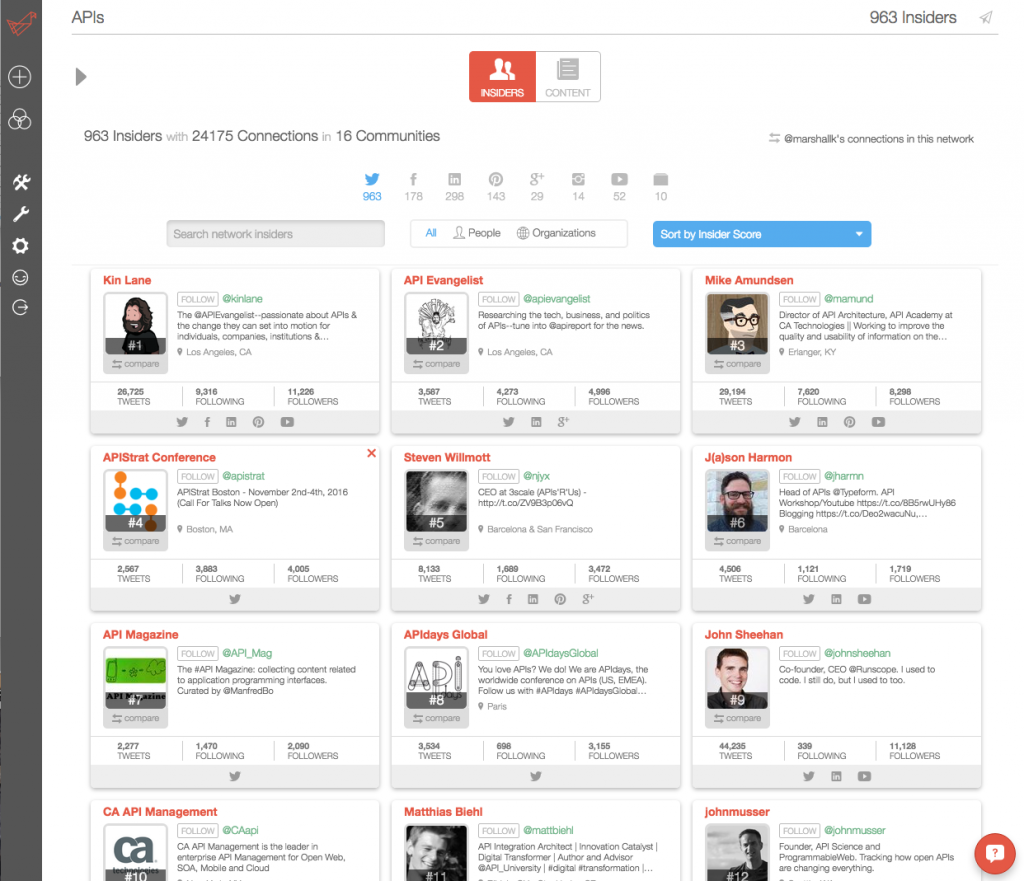This morning I was looking around the great subscription tech blog The Information and noticed they have a “comments of the week” blog post, where they highlight the best comments posted over the week by their readers.  I love that!  It’s a great way to really dig into the value that great community conversation offers – and a great way to encourage more.  It’s like the Letters to the Editor section in print media.
All of our networks are rich with opportunity but almost all of us fail to tap into them enough. Â I need to be talking to my professional advisors more than I do – but I also want to dig into the inbound conversations I’m having online more than I am.
Toward that end, I want to try doing something inspired by The Information – but based on the place online I’m most active: Twitter. Â Thus I offer, for our mutual enlightenment and inspiration, the Top 3 Best Replies I Got on Twitter This Week. Â I want to highlight them, put them in context, share the wealth of information available if you follow the people and the content in these conversations, and encourage my network on Twitter (and elsewhere) to meet each other. Â I am super grateful to be able to have all these awesome conversations in a given week!
In no particular order…
Gabe Rivera and the Facebook Newsfeed
No doubt you’ve heard the controversy this week over Facebook allegedly instructing contractors editing their super influential top news widget to suppress links to conservative websites. Â Jason Calacanis said on This Week in Startups that he thinks a part of it is that many of the conservative sites in question are more focused on commentary than on the kind of original reporting that Facebook wants to highlight. Â That’s a fair, well informed guess at part of what’s going on there.
I really like how Gabe Rivera, founder of venerable tech news aggregator Techmeme and great political aggregator Memeorandum, puts it. Â Techmeme has had humans helping machines by editing story selection and even headlines for years. Â I interviewed his first editor Megan McCarthy 7 years ago.
Gabe Tweets, “A contention (now more poignant): a key avenue for improving News Feed has always been to introduce certain forms of human editorial input.” Â I said the winning team is almost always hybrid, intended as an allusion to Tyler Cowan’s writing about human/machine hybrid chess teams, and Gabe replied, “I’m sure it’s hybrid already by some definition. What I’m claiming is per-story moderations could improve NF [newsfeed] experience for all.” (Emphasis added.) Â As Cowan says, the future belongs to humble humans collaborating well with intelligent machines.
Andreas Antonopoulos on Surveillance Privilege
I’ve had the incredible privilege this month to facilitate two long conversations between blockchain expert Andreas Antonopoulos and futurist Dr. Wendy Schultz – both, according to our data at Little Bird, the most influential people in the world in their respective fields, blockchain and women futurists.
Antonopoulos told us stories about research into things like mnemonic wallets, where refugees can upload their financial assets into the blockchain, flee across international borders, then retrieve their money later using nothing but a 12 word passcode they have memorized.  And multi-signatory property ownership based on the blockchain, which has been used for example in societies where women have traditionally not been allowed to own property.  With multisig Bitcoin wallets, if one woman’s husband tries to take her property, he’s unable to without the signatures of the other 6 women who all own it together.  Incredible.
I haven’t been able to share these inspiring stories anywhere outside of telling everyone I know in conversation, but I did Tweet the following this week: “If you’re not worried about gov & corp surveillance, you’re among a very privileged fraction of people on earth,” says @ ”
Some people were unclear on what that meant, but Andreas stepped in to the Tweet stream and clarified really well. “Everyone is surveilled. Often that surveillance is by oppressive/brutal governments. Ours isn’t (yet) = privilege.” Â As he said in a conversation we had this month, there are 7 billion people on earth and most of them do not have the privilege of shrugging at surveillance.
Sylvian Carle on the Social Graph
I found myself looking at the Likes tab on a few cool peoples’ Twitter profiles on my phone this week and was struck by what a goldmine it is. Â It’s another case of getting to leverage someone smart’s judgement and ride along to discover what they discovered. Â I said “I spend far too little time on other peoples’ Likes tabs, and I bet you do too.”
To that I got a great reply from Twitter developer advocate turned VC Sylvian Carle, who added “and follow, for people with a small follow list (less than a few hundreds).”  By that he means looking at who the people you follow are following themselves, in particular the really discerning people who follow less than a few hundred people.  Another great reminder.  Back when I was working as a journalist I used to regularly visit the “following” page on the Twitter profiles of rival writers like MG Siegler and Liz Gannes.  They’d meet people face to face in Silicon Valley and follow them on Twitter, then I’d discover them and learn about new companies that way.  Finding the people followed by experts and influencers is core to the discovery power we’ve built at Little Bird, too.  Here’s who Sylvian’s following – some really interesting looking technologists and startups.
Ok, I was going to write about the top 5 conversations I had this week but just putting these 3 in context has taken a good chunk of time.  I also really appreciated threads from Matt Heinz on inspiring B2B marketing thought leaders, Todd Barnard on connections between artificial intelligence, Marshall McLuhan, Flaubert and Voltaire, Ethan Jewett on influencer data analysis and male dominance, Richard MacManus on the distribution of his great new email newsletter Augment Intelligence, my former co-worker Nate Angel on the gender gap in data capture, Adam Duvander on dreams coming true in geolocation APIs and VC Semil Shah on Lemkin bravado, startup growth and scale.
I love Twitter so much! Â You should come join me there for fascinating conversations about the future, throughout the day while we work. Â I’ve been really busy this month so my numbers are down on Tweet frequency (by 13%) and mentions (24%). Â But none the less: the network is rich with opportunity. Â And as I say in the tweet I pinned:

